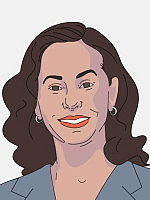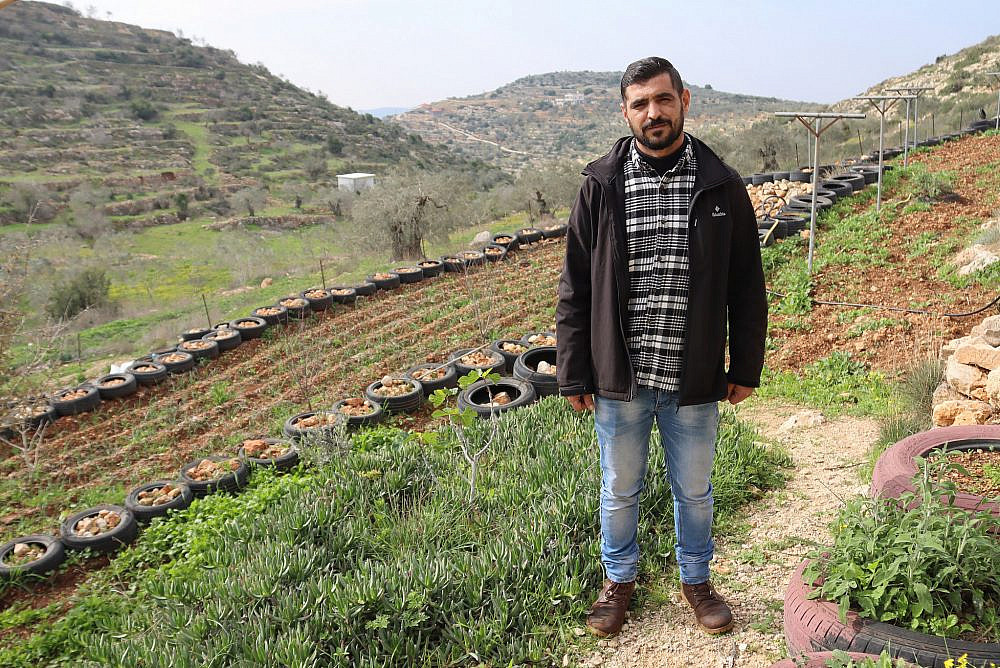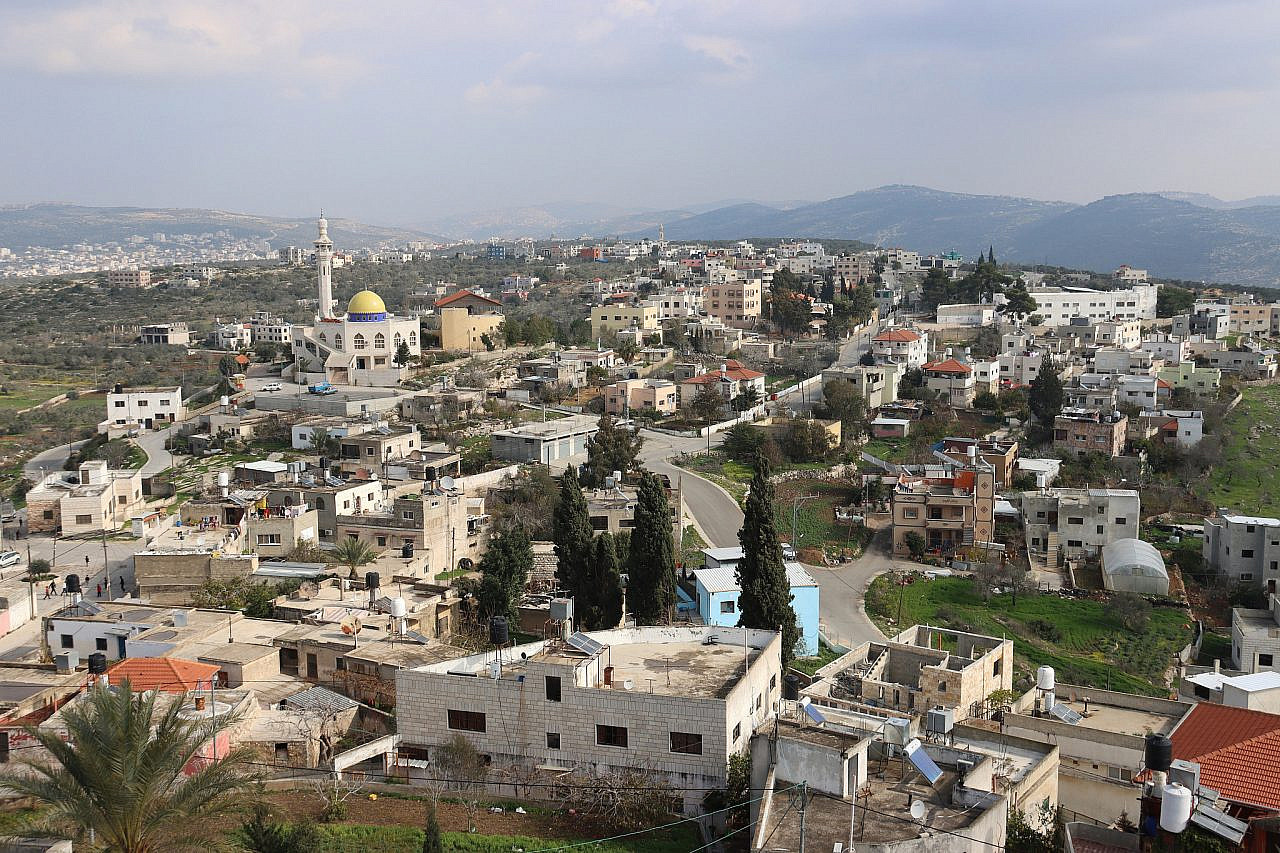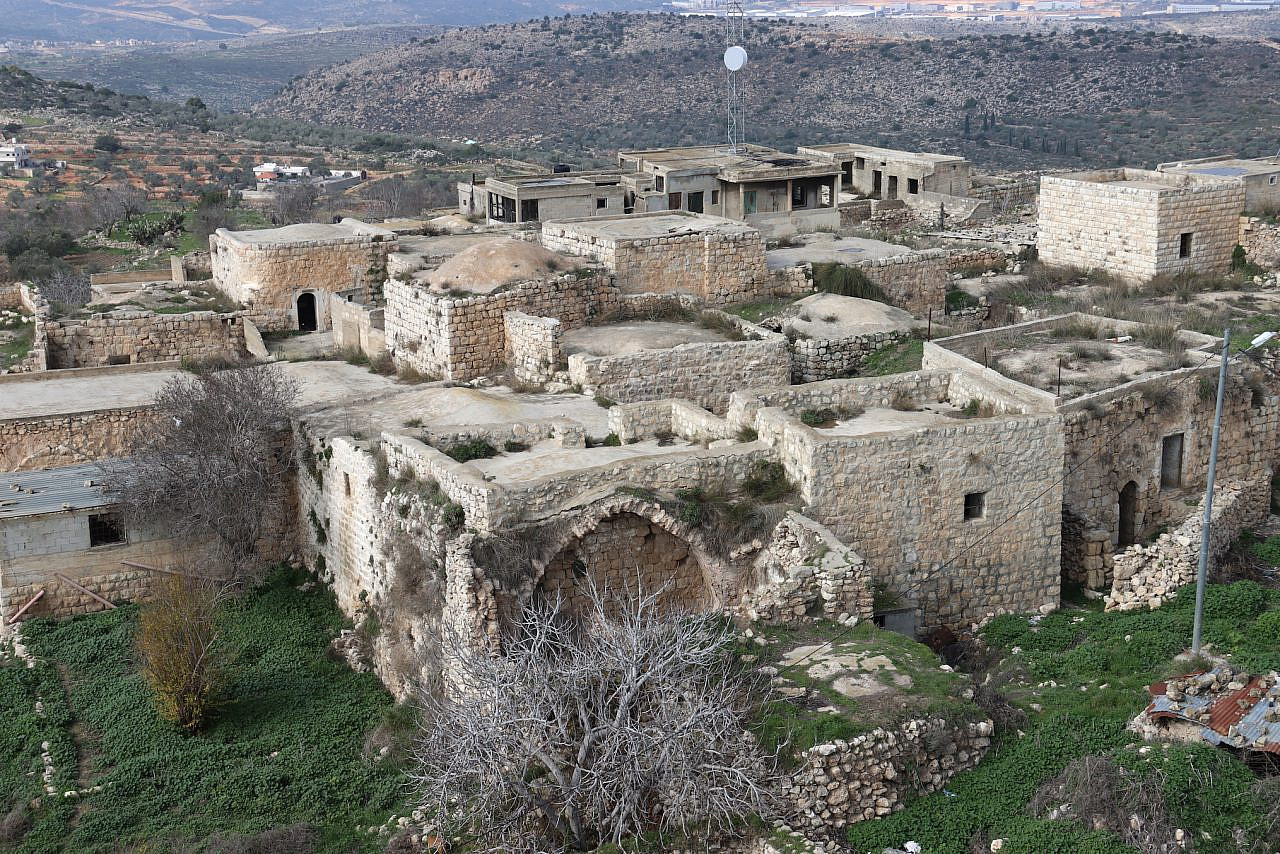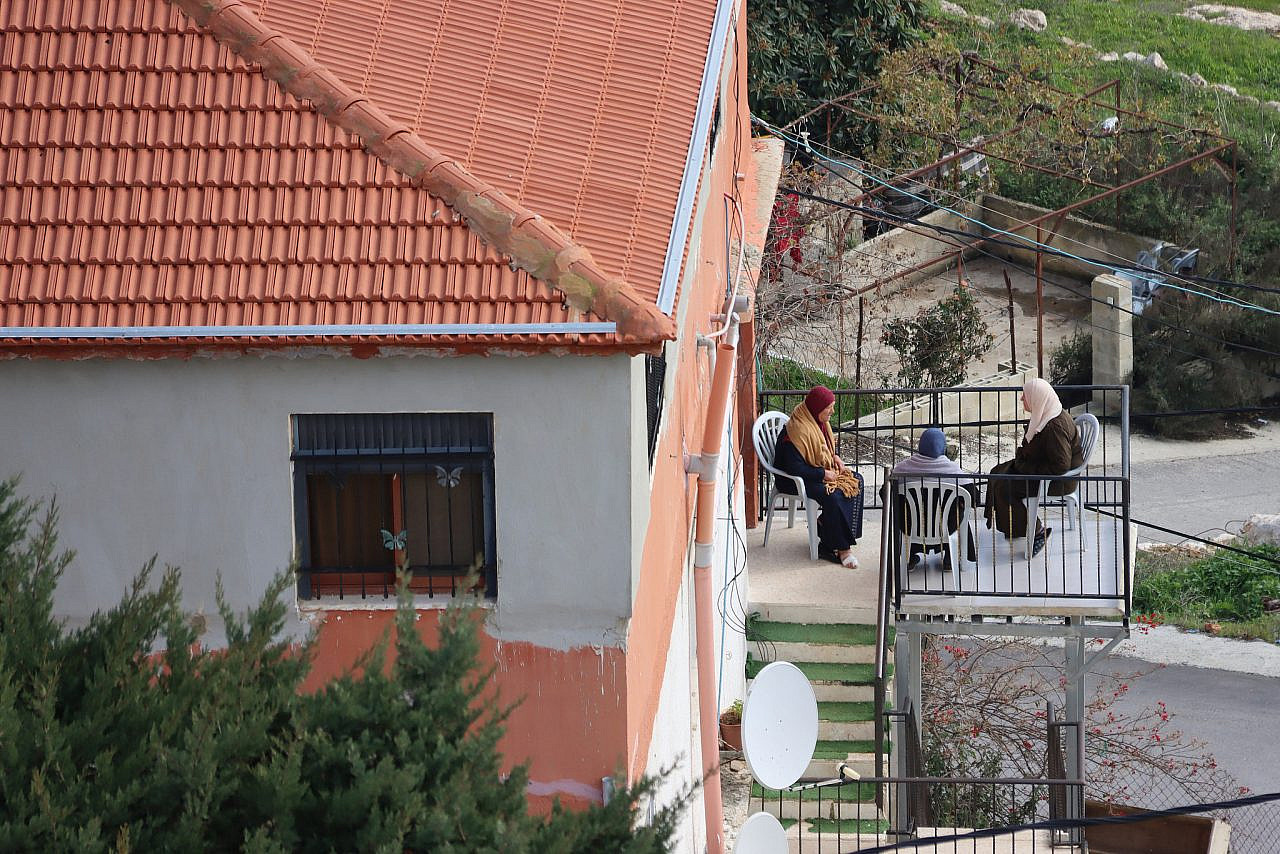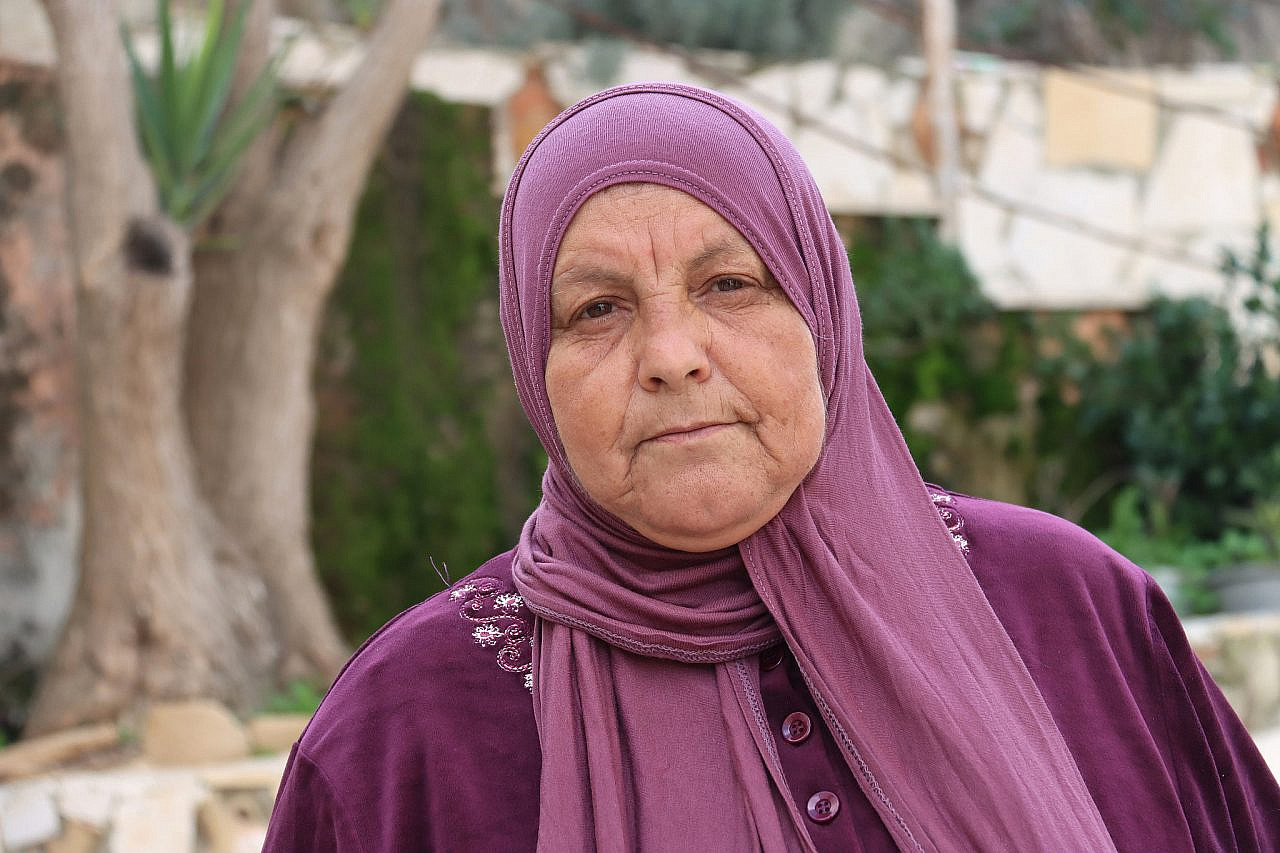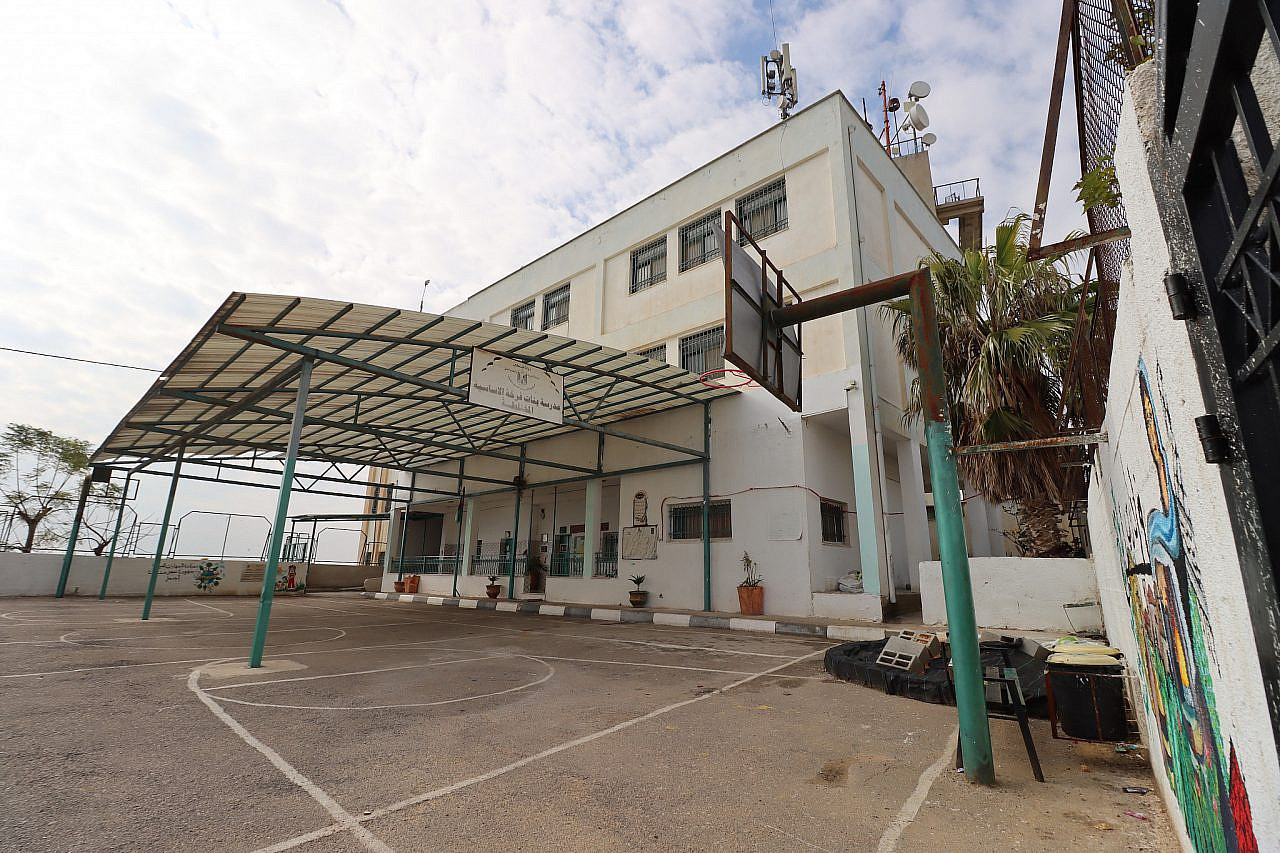On a slightly elevated hilltop in the center of the occupied West Bank, situated between Nablus and Ramallah, lies a suburban haven of feminism, communism, and grassroots participatory democracy. The village of Farkha, which aspires to become completely self-reliant by the end of the decade, was recognized a few years ago as the first ecovillage in Palestine. Five of the village council’s nine seats are currently held by people under the age of 38, while similarly youthful autonomous committees work across different fields to improve residents’ lives.
Farkha is home to a close-knit community of around 1,800 residents; even those who have left, including expats and young families that moved to bigger cities, maintain strong ties to their hometown through donating to community projects and returning regularly to visit — especially for the annual Farkha International Youth Volunteer Festival, which welcomes participants from across Palestine and around the world.
“We don’t want to do things in the style of the Palestinian Authority,” said Mustafa Hammad, the 31-year-old mayor of Farkha, which falls under the PA’s Salfit Governorate. The village’s drive for self-sufficiency is rooted in residents’ distrust of the PA’s exploitative, neoliberal economic policies, from which they seek to become independent. To that end, Farkha produces 256 kilowatts of electric power from solar energy, saving 35 percent on electricity bills, and gets nearly 35 percent of its water needs from a local spring. Meanwhile, residents grow their own agricultural produce and carry out local infrastructural projects with their own hands.
In addition, instead of accepting the monthly salaries provided by the PA’s local governance ministry, members of the village council deposit them in a fund for projects in the community. The council also waives fees that it deems unnecessary for residents to pay, such as those for land registration or for obtaining fee quittance papers.
“We try to lead by example, and we did what we truly believed in for our people,” said Hammad, explaining the commitment of local residents to their village. “This is how we support the steadfastness of a people facing the risk of ethnic cleansing and erasure by a brutal occupying power.”
Protecting the vulnerable during the pandemic
Looking out from Farkha over thousands of dunams of olive groves to the north, with the mountains of Nablus in the background, it is no wonder residents are opposed to constructing large new access roads into the village. Instead, farmers and landowners decided unanimously to take a few meters from several lots to build small agricultural roads for donkeys and vehicles to enter and leave, in order to simplify the harvest.
Since being designated an ecovillage, Farkha has also begun developing its own organic agriculture and agro-forestry site, which includes a combination of traditional stone terracing and water retention and irrigation systems, and even a biogas digester for preparing food. The farm is open for experimentation and learning for visitors from Palestine and around the world.
“The village mostly consists of middle-class workers and public sector employees, and no big tycoons, but we depend on our personal efforts in almost everything,” Hammad explained. “We managed to build our own experimental eco-farm, we handle our school’s periodic maintenance [ourselves], and we constructed our own social club building from scratch.”
Of the village’s 330 households, 234 have their own gardens. More than half of these were developed during the COVID-19 lockdown, a period of nearly 18 months in which young people in the village stepped up and took on new levels of responsibility.
During the pandemic, Hammad, already an established local activist and then-deputy mayor, undertook with 17 of his peers to meet the needs of the families in the village. Throughout the lockdowns between March 2020 and August 2021, this support committee ran errands for older people in the community in order to reduce their exposure to the virus. The volunteers paid people’s electricity and water bills, purchased medicine and groceries, and raised funds from within the community and supportive external organizations to provide for those most in need — as determined by a survey they created. These activities likely contributed to the fact that only four village residents died of COVID-19, out of 115 infections.
These young volunteers’ resounding success in the October 2021 village elections was evidence of the impact they had on their fellow villagers during the lockdowns. The new council also introduced an expanded model of governance that has brought even more young people into positions of responsibility: “There are nine village council members, but the village is basically run by 130 active members of the council committees,” Hammad explained.
The education committee, for example, comprises the parents’ council of the local school, former principals and educators, and current teachers. There is also a legal committee made up of lawyers and expert practitioners as well former council members who have knowledge of PA laws and regulations. All nine committees carry out their meetings independently.
“The committees are decentralized, and their decisions are compulsory for the council [to adopt] because the trust is mutual,” said Hammad. That trust, he explained, was forged during the COVID-19 period, when young people took charge and showed the villagers that they are capable of taking on more responsibility.
‘The dreams are large’
Hammad’s 62-year-old mother, Amneh Rizqallah, emerged from her kitchen with a scruffy apron wrapped around her waist. Hammad had bragged that the village has a progressive feminist perspective toward women’s participation, and Rizqallah echoed this sentiment. “None of our girls in Farkha stop their education,” she said in a confident tone as she set out a tray of teacups and saucers. “Even the ones who don’t do well find vocational training.”
Rizqallah explained that she and her peers view education as a “weapon” for young women, given that they are not exposed to as many employment opportunities as young men. “Farkha is more advanced in many ways, compared to the nearby villages, because our girls are well educated,” she said. “When they start families, many of them already have careers that push forward their families and their community.”
Embodying this spirit was a group of young high school girls who had gathered in the street. One described the village as “a very encouraging environment” in which to receive an education. “I aspire to study agricultural engineering because I believe I can merge my mother’s farming methods with new scientific ways,” said another.
The girls had also joined Farkha’s annual international volunteering festival for the first time this past summer. The event takes inspiration from the volunteering festivals held in Nazareth in the 1970s and ’80s at the initiative of the city’s communist mayor, Tawfiq Ziad, after his landslide election victory in 1975; Palestinian and international participants would take part in cleaning, planting, and infrastructure rehabilitation projects for a few days each summer — helping to deal with the shortage of resources from which the city was suffering at the time — before joining political, cultural, and educational events in the evenings.
The Farkha International Volunteering Festival, which recently celebrated its 27th year, similarly brings together young left-wing activists from all over Palestine and the world for around 10 days each summer, anchoring the Communist Party’s influence in the village through collaboration with international leftist parties that participate every year by the dozen. The most recent event hosted 60 international volunteers, mostly from Europe, alongside 150 Palestinians who were mostly Farkha residents.
“My personal history, the history of the village as a whole, and the history of the Communist Party’s presence in it since the 1950s are intertwined,” explained Hammad, stressing that the progressive thought and principles of the communist movement have shaped the collective outlook of most of the villagers.
“Our program is entirely planned and overseen by a group of about 10 of Farkha’s young men and women,” he explained, stressing that the work is entirely voluntary and requires about two months of preparation. “Funds are raised locally, and logistics, such as food, are taken care of by our own families.”
Building on Farkha’s strong, consolidated leftist principles over the decades, Hammad and his peers are trying to further the prospects of the village without abandoning its rural character. The focus now, he said, is to implement projects such as building a new school, creating an independent water supply, and expanding Farkha’s access to solar power. “The dreams are large, but we have an eight-year plan to become a completely self-reliant village, here, in the heart of Palestine, despite everything,” he said. For many outside observers, this is the scene of what a real progressive democracy looks like in the Middle East.

